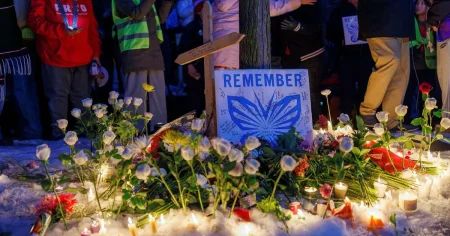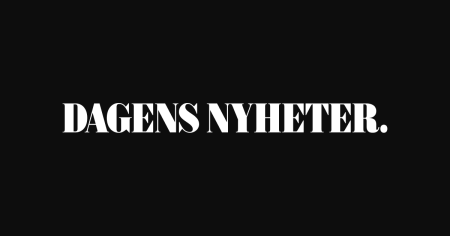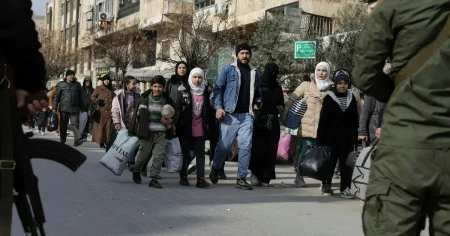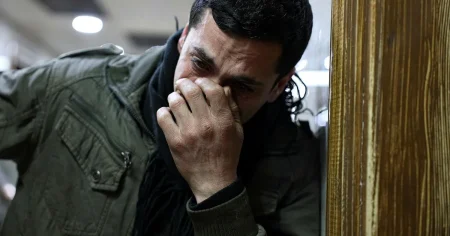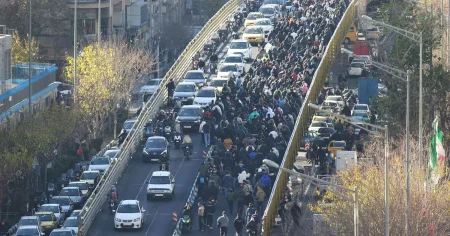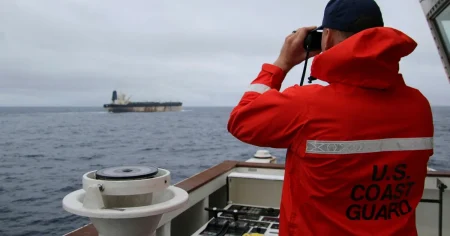The 2015-2016 refugee crisis, driven primarily by the Syrian war, saw a surge of people seeking refuge in Europe. Turkish President Erdogan capitalized on this situation, effectively leveraging the migrant flow to secure a six billion euro deal from the EU in exchange for stemming the tide of arrivals. The human tragedy was reduced to a cynical political game, with vulnerable individuals categorized as mere ”migrants” or ”refugees.” This influx, and the narrative surrounding it, fueled xenophobic and populist movements across the Western world, notably in the United States.
In Poland, the narrative of a migrant threat took center stage during the 2015 election campaign. Jarosław Kaczyński, leader of the national-conservative Law and Justice party, stoked fears by claiming refugees carried ”contagion and parasites.” This rhetoric resonated with voters, propelling him to power. Observing this dynamic, Vladimir Putin and his Belarusian ally, Alexander Lukashenko, recognized the potential to destabilize the EU and bolster pro-Russian, right-wing populist movements. They began orchestrating their own migrant crisis in mid-2021, potentially as a precursor to the full-scale invasion of Ukraine the following year.
Lukashenko’s regime orchestrated the influx of thousands of migrants, primarily from the Middle East and Africa, into Belarus. These individuals, many of whom hailed from Kurdistan in northern Iraq, harbored dreams of reaching the EU and paid exorbitant sums to reach Minsk. Upon arrival, they were housed in hotels before being transported to the Polish border, where Belarusian security services facilitated their illegal crossing. This operation was widely perceived as Lukashenko’s retaliation against EU sanctions imposed on his regime and the bloc’s support for the Belarusian opposition.
With approximately 300 people attempting to cross the border daily, the Polish government labeled the situation a ”hybrid attack.” Warsaw responded by declaring a state of emergency and establishing a three-kilometer exclusion zone along the border. In violation of EU law, thousands of migrants were denied the right to seek asylum and subjected to brutal ”pushbacks.” Many perished from exhaustion and hypothermia in the bordering forests, drawing sharp condemnation from human rights organizations. Since September 2021, the grim toll has reached 87 deaths on both sides of the border.
Despite the construction of a high steel barrier to replace the initial barbed wire fencing, the flow of migrants persists. The political landscape in Poland has shifted, with migration resistance, excluding Ukrainian war refugees, and national security concerns becoming mainstream political priorities. This hardening stance has resulted in intensified border security measures, even after the liberal government of Donald Tusk replaced the right-wing populist government in late 2023. This situation underscores the complex and evolving challenges facing European nations as they grapple with migration flows and geopolitical pressures.
The migrant crisis, manipulated by both Erdogan and Lukashenko, has exposed the vulnerabilities of the EU and the cynical exploitation of human suffering for political gain. It further revealed the rise of nationalistic sentiments and the erosion of humanitarian principles within some member states. The ongoing situation at the Polish-Belarusian border serves as a stark reminder of the human cost of political maneuvering and the urgent need for comprehensive and humane solutions to address migration challenges. The erection of physical barriers and the implementation of harsh border policies, while seemingly addressing immediate security concerns, ultimately fail to resolve the underlying issues driving migration and raise serious ethical questions about the treatment of vulnerable individuals seeking refuge.






